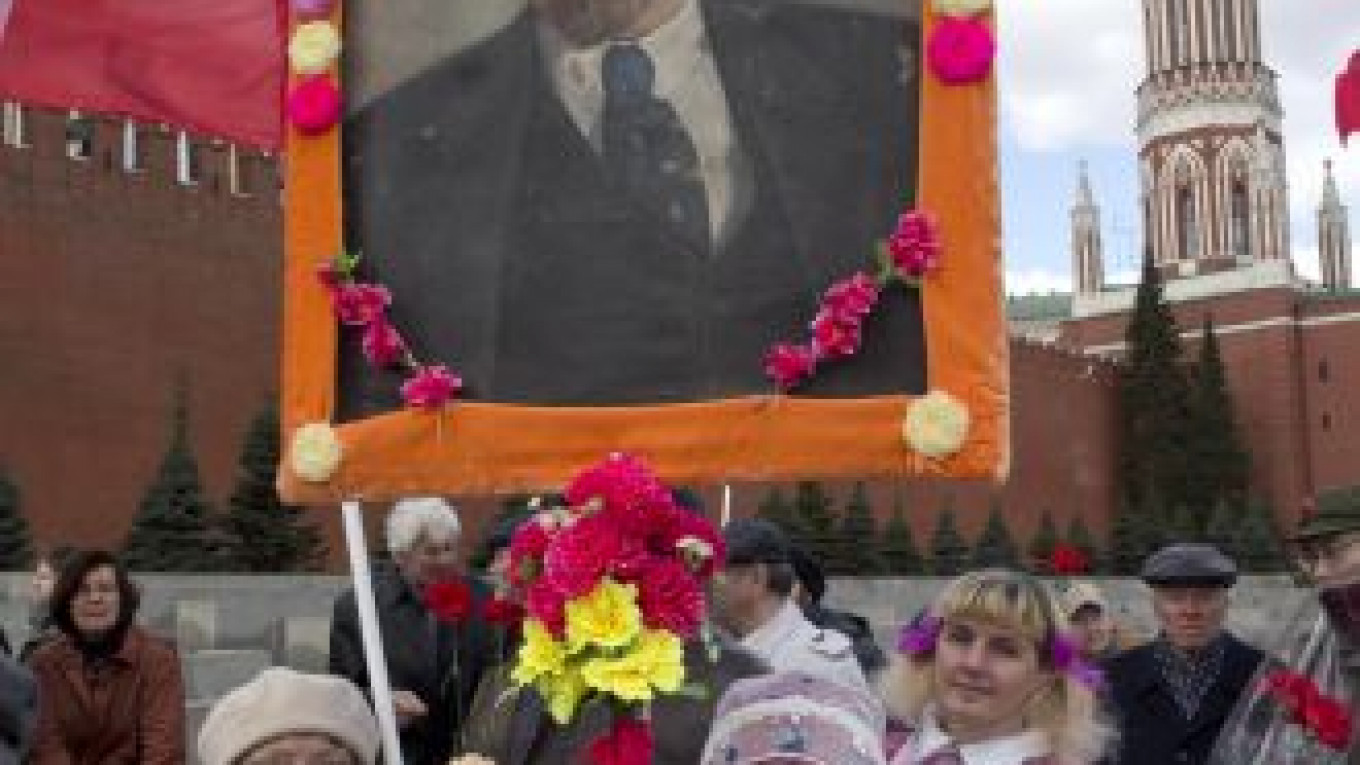Most Russians have a reserved attitude toward Vladimir Lenin, the leader of the 1917 Bolshevik Revolution, and do not support renaming St. Petersburg to Leningrad in his honor, a public opinion poll showed.
The poll, conducted by the Levada Center on the eve of the 143rd anniversary of Lenin's birth on Monday, revealed that 31 percent of respondents believe Lenin will be remembered only by historians within 40-50 years, Interfax reported.
The number of people who share this view fell 8 percentage points from two years ago, however, and by 14 percentage points since 2007.
Twenty-eight percent of respondents said Lenin would still be remembered as a founder of the Soviet nation even in half a century, while 17 percent considered him a remarkable leader who fought for workers' interests and 13 percent said he was a great thinker who foresaw the future.
These categories have not seen much change since 1995, the Levada Center said, though the number of those who admire Lenin for his practical achievements in politics fell from 19 percent to 9 percent.
Many Russians say the memory of the Bolshevik leader will fade in 50 years.
Those who see the Bolshevik leader as a successful, trigger-happy politician constituted 7 percent in the latest poll, against 12 percent in 1995.
Five percent said he would go down in history as a brutal dictator, compared with 12 percent 18 years ago.
The Levada Center noted that a positive attitude toward Lenin is popular among respondents over 40 years of age.
Meanwhile, respondents between 25-40 years of age tended to give the most moderate assessment of Lenin's significance, while younger respondents demonstrated a generally positive but less informed opinion.
Related articles:
A Message from The Moscow Times:
Dear readers,
We are facing unprecedented challenges. Russia's Prosecutor General's Office has designated The Moscow Times as an "undesirable" organization, criminalizing our work and putting our staff at risk of prosecution. This follows our earlier unjust labeling as a "foreign agent."
These actions are direct attempts to silence independent journalism in Russia. The authorities claim our work "discredits the decisions of the Russian leadership." We see things differently: we strive to provide accurate, unbiased reporting on Russia.
We, the journalists of The Moscow Times, refuse to be silenced. But to continue our work, we need your help.
Your support, no matter how small, makes a world of difference. If you can, please support us monthly starting from just $2. It's quick to set up, and every contribution makes a significant impact.
By supporting The Moscow Times, you're defending open, independent journalism in the face of repression. Thank you for standing with us.
Remind me later.






